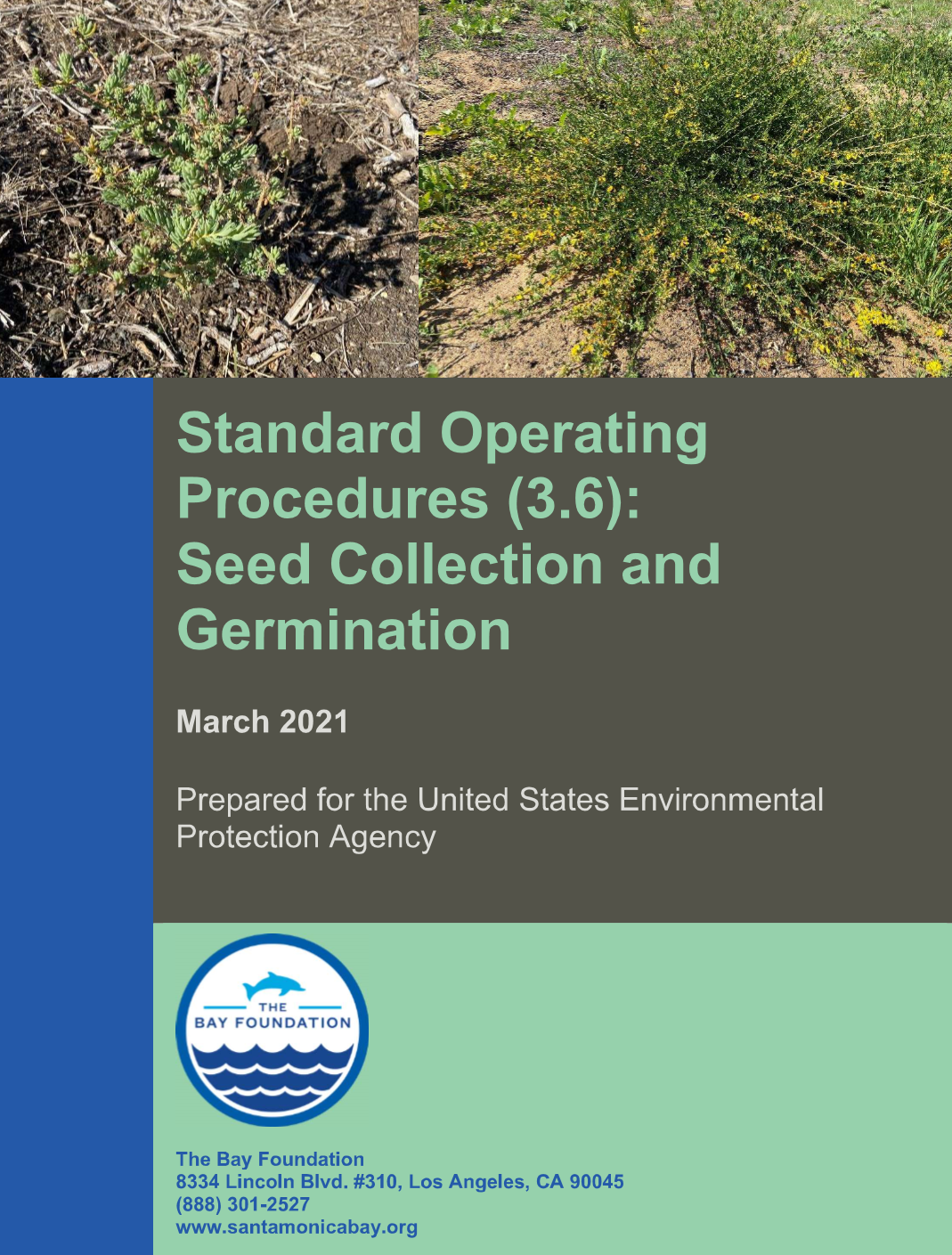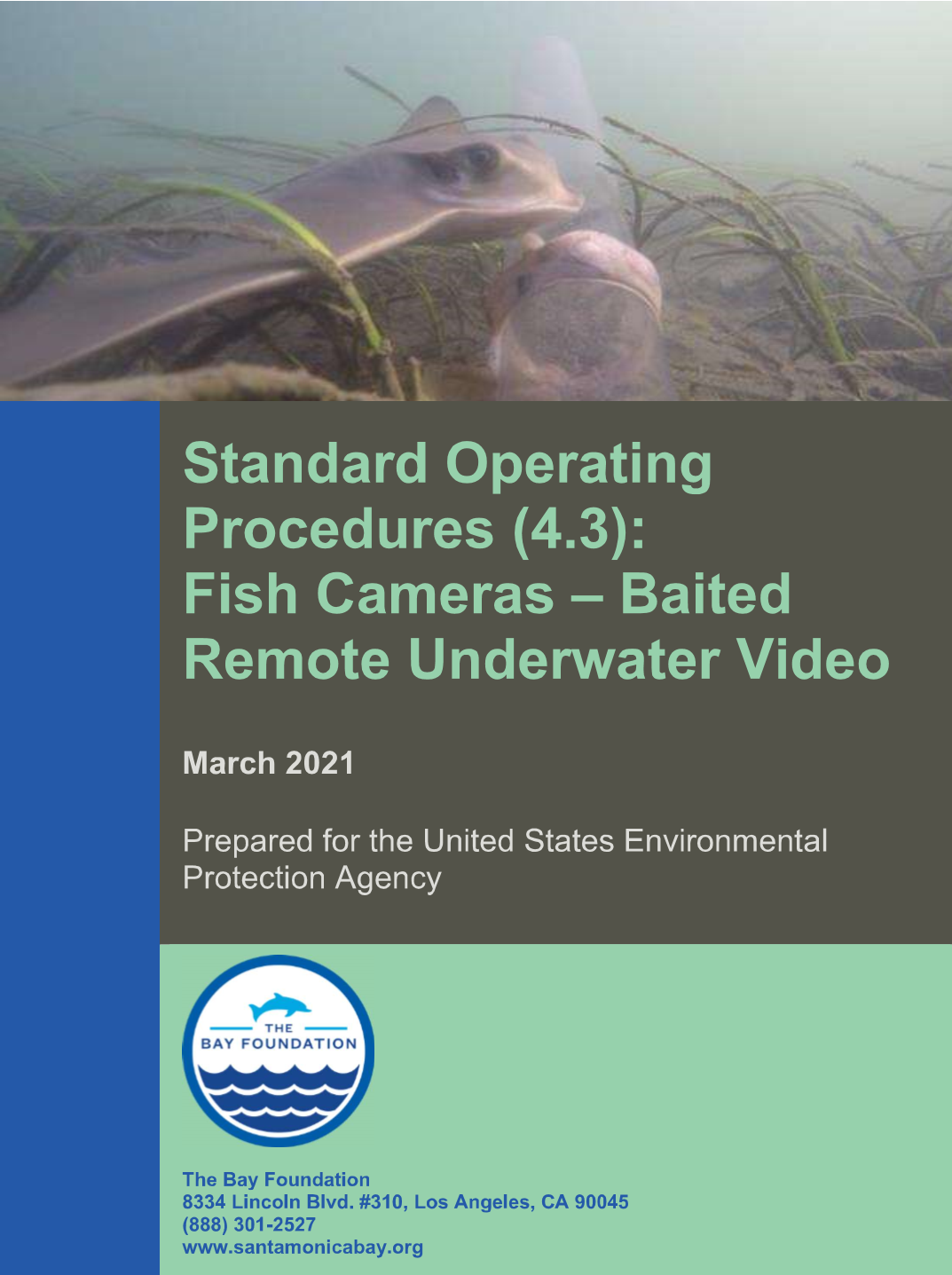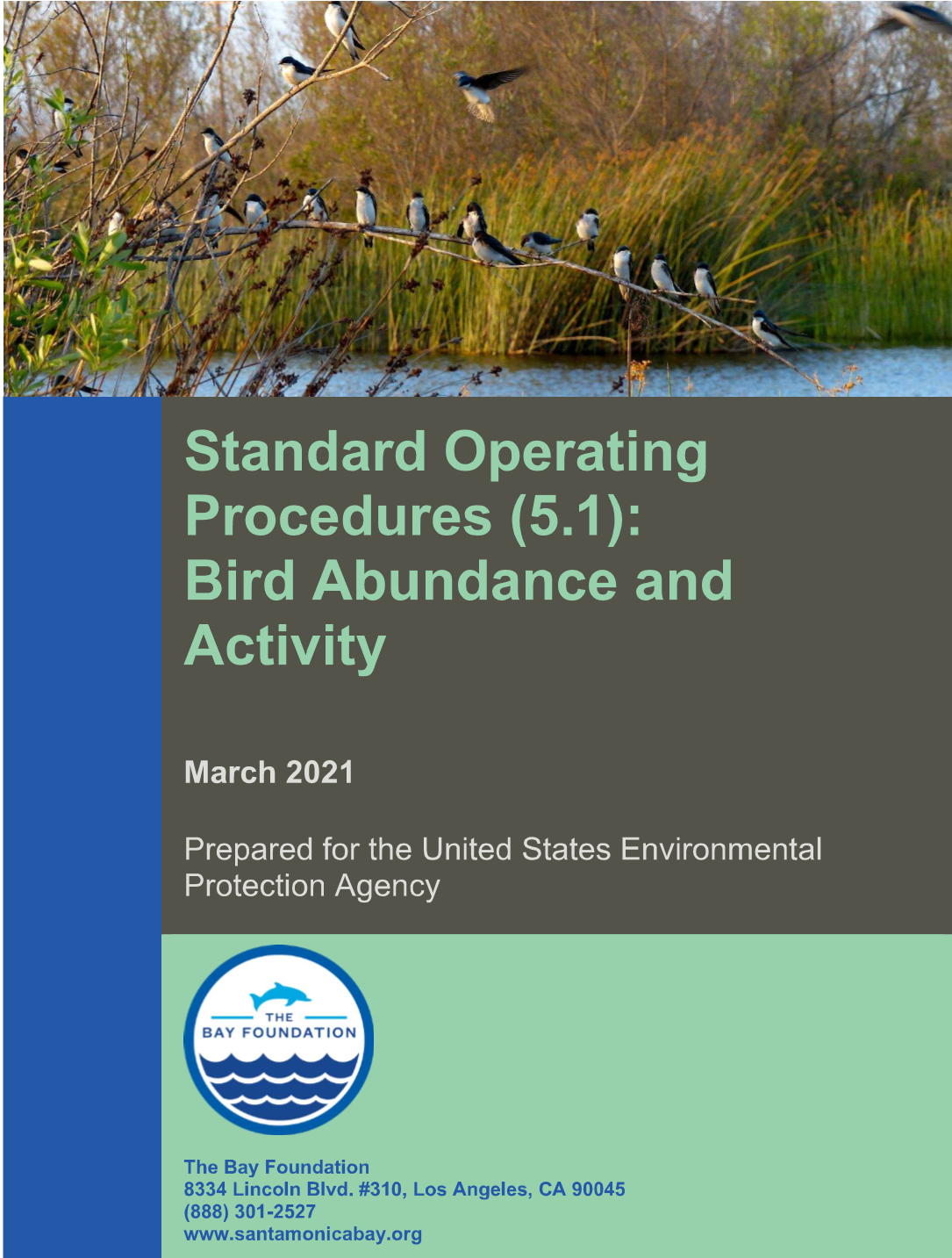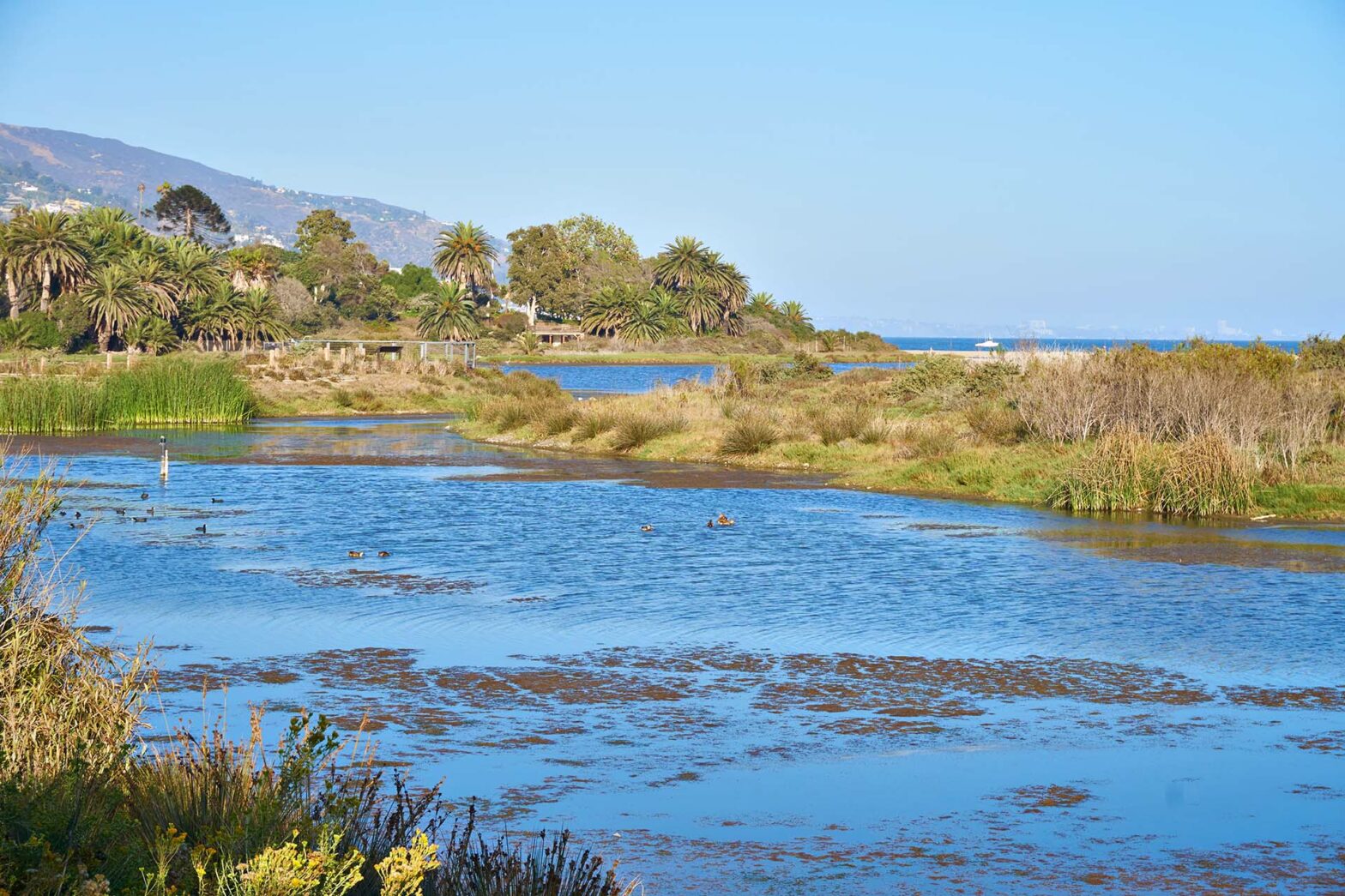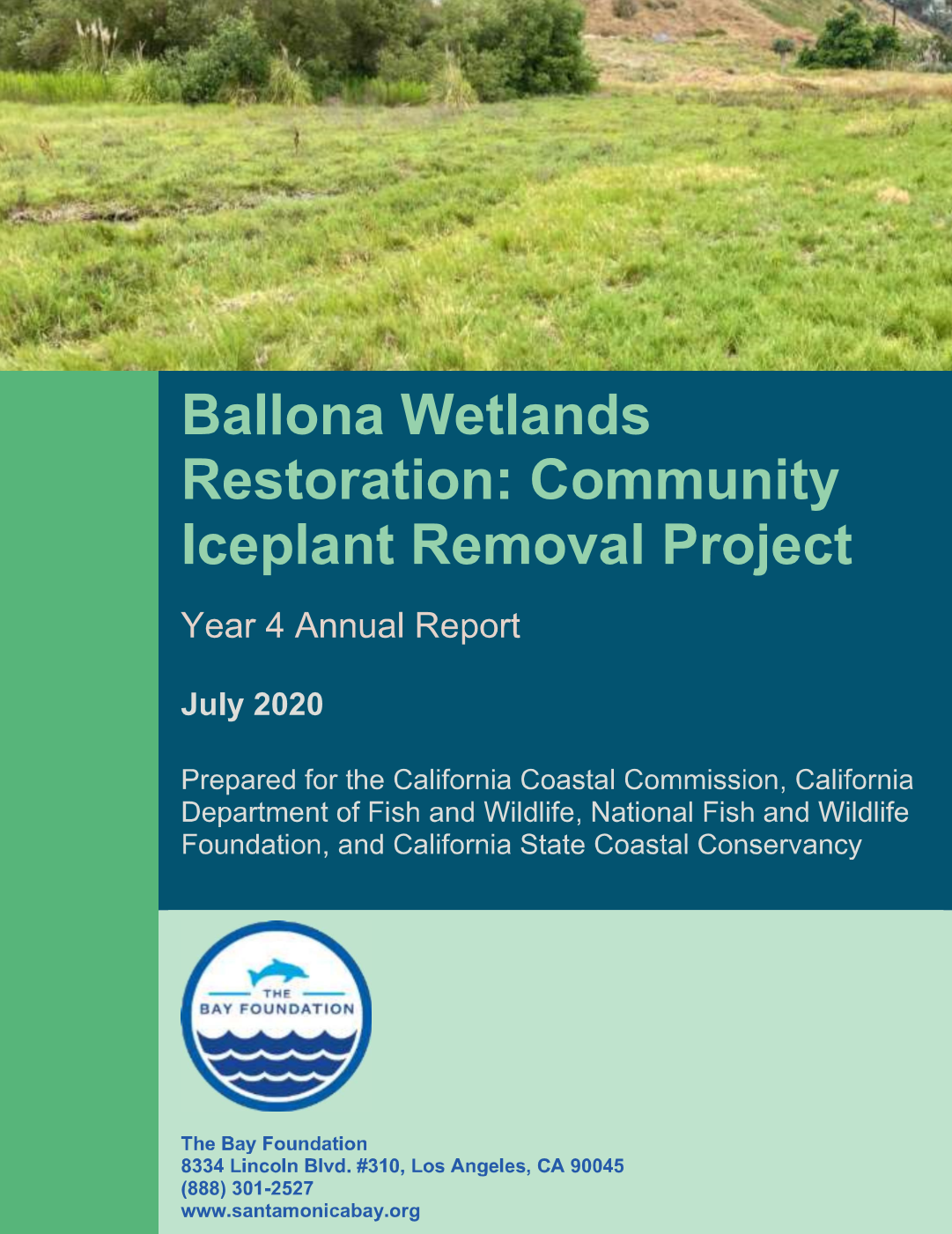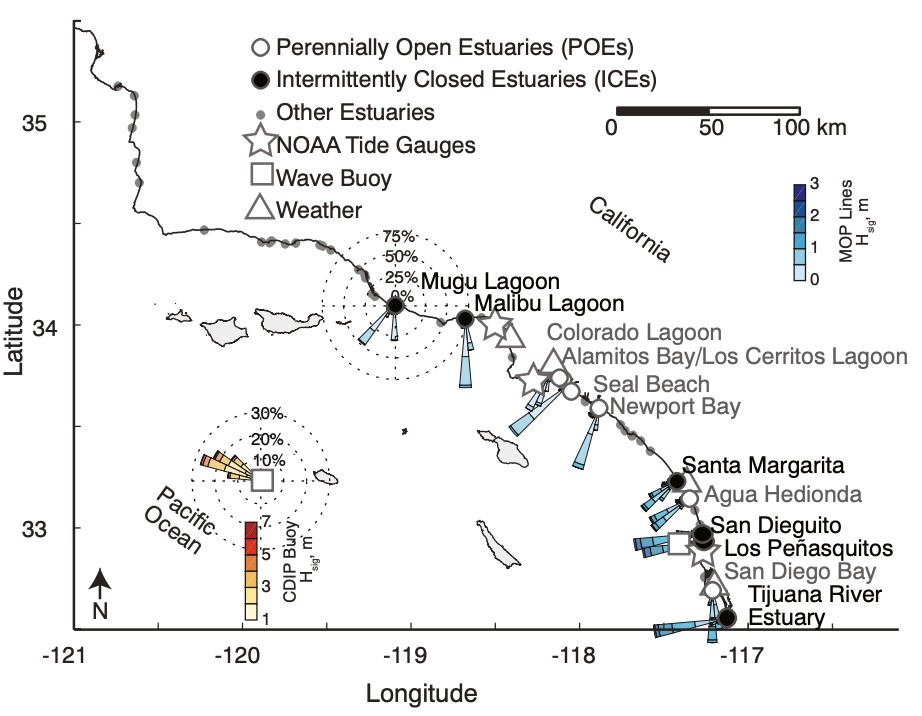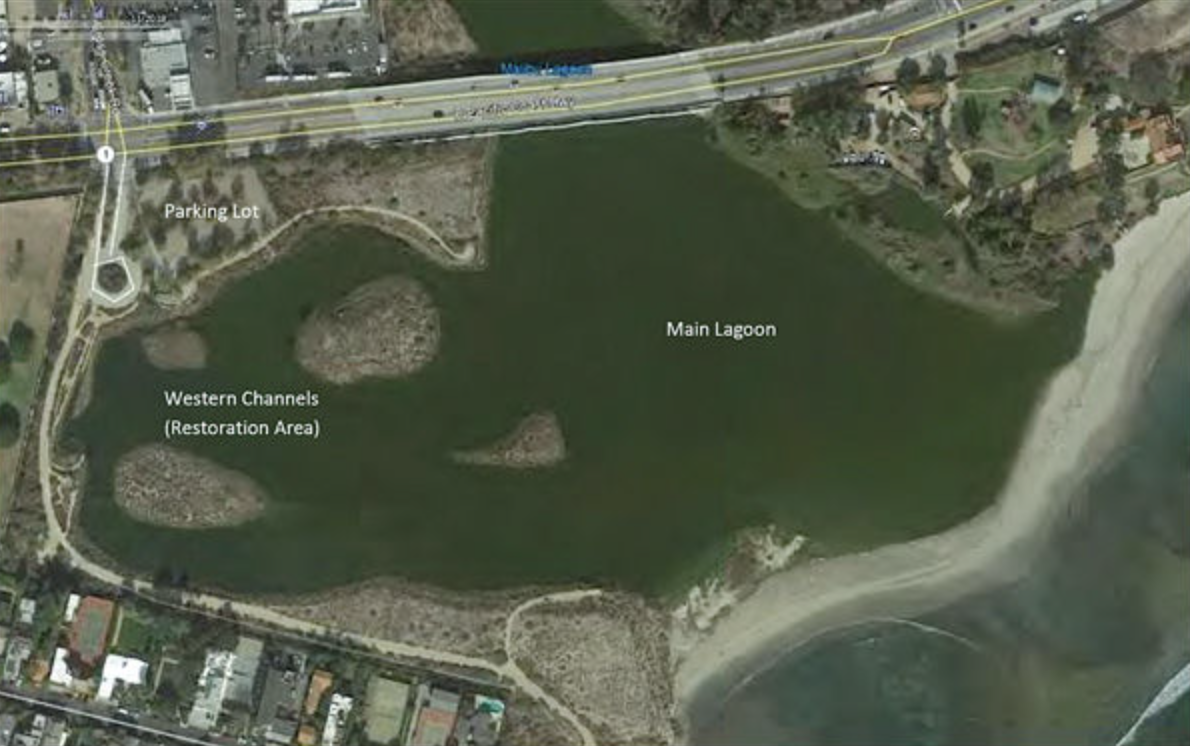This document outlines the basic seed collection and germination strategies to be employed within southern California estuarine and adjacent upland habitats. For more detailed information on specific plant species, see Barton et al. 2016, published in the Bulletin of Southern California Academy of Sciences, which lists available information for 84 native plant species common to… Continue reading Standard Operating Procedures (3.6): Seed Collection and Germination
Topic Category: Revitalizing Wetlands
Standard Operating Procedures (4.3): Fish Cameras – Baited Remote Underwater Video
Defining the fish assemblage of a wetland can be difficult, due to the highly mobile nature of the fauna. Characterizing wetland fish assemblages is often a primary goal of monitoring efforts, but besides the mobility, there are often inherent biases associated with sampling methodologies. Therefore, it is often advantageous to use a variety of methodologies… Continue reading Standard Operating Procedures (4.3): Fish Cameras – Baited Remote Underwater Video
Standard Operating Procedures (5.1): Bird Abundance and Activity
The primary purpose of these observational sampling methods is to develop maps of species presence and distributions including information on rare species, to quantify a snapshot of the avian community, and/or to supplement historical or volunteer data. Additionally, recording activity of each species will allow for an assessment of higher ecological function of the survey… Continue reading Standard Operating Procedures (5.1): Bird Abundance and Activity
Congress Moves to Invest in the Nation’s Estuaries, Including Santa Monica Bay NEP
Congress reaffirmed its support and strong commitment to the National Estuary Program, a time tested, non-regulatory program that enables communities to restore and protect the bays and estuaries they call home. The Santa Monica Bay National Estuary Program (SMBNEP), a partnership between the Santa Monica Bay Restoration Commission and The Bay Foundation, is one of… Continue reading Congress Moves to Invest in the Nation’s Estuaries, Including Santa Monica Bay NEP
Ballona Wetlands Restoration: Community Iceplant Removal Project, Year 4 Annual Report
The Bay Foundation (TBF), in partnership with California Department of Fish and Wildlife (CDFW), Friends of Ballona Wetlands (FBW), and community volunteers are conducting a project to remove invasive vegetation while broadening public involvement and stewardship at the Ballona Wetlands Ecological Reserve (Reserve). This report serves as the fourth annual report of the “Ballona Wetlands… Continue reading Ballona Wetlands Restoration: Community Iceplant Removal Project, Year 4 Annual Report
L.A. Environmental Organizations Adapt to Challenges of COVID-19
On Earth Day, the Ballona Wetlands Ecological Reserve in West Los Angeles is typically bustling with over 100 volunteers working on restoration projects as part of an annual event held by the Friends of Ballona Wetlands (FBW) organization. However, on Earth Day this week, the wetlands sat devoid of human activity as people continued to… Continue reading L.A. Environmental Organizations Adapt to Challenges of COVID-19
Effects of Elevated Sea Levels and Waves on Southern California Estuaries During the 2015–2016 El Niño
The 2015–2016 El Niño provided insight into how low-inflow estuaries might respond to future climate regimes, including high sea levels and more intense waves. High waves and water levels coupled with low rainfall along the Southern California coastline provided the opportunity to examine how extreme ocean forcing impacts estuaries independently from fluvial events. From November… Continue reading Effects of Elevated Sea Levels and Waves on Southern California Estuaries During the 2015–2016 El Niño
The Bay Foundation Director Tom Ford Advocates for National Estuary Program Funding
Facing persistent threats to federal funding, leaders of National Estuary Programs (NEPs) across the US were invited to speak before the US House of Representatives Subcommittee on Water, Resources, and the Environment to highlight the incredible success and leveraging power that US EPA funding brings to coastal communities and ecosystems. With the mission to protect… Continue reading The Bay Foundation Director Tom Ford Advocates for National Estuary Program Funding
2013 Malibu Lagoon Restoration Declared a Success
From 2012-13, the 31-acre Malibu Lagoon underwent a nine-month-long restoration process initiated by California State Parks. Twelve acres of wetland near the mouth of Malibu Creek were drained, wildlife was trapped and relocated, heavy equipment scooped out a thousand tons of trash and fill, channels and bridges were removed, banks were reshaped and native vegetation… Continue reading 2013 Malibu Lagoon Restoration Declared a Success
Final Comprehensive Monitoring Report of Malibu Lagoon Indicates Proven Success Towards Project Goals
The Bay Foundation (TBF) and California State Parks just released the Malibu Lagoon Restoration and Enhancement Project Final Comprehensive Monitoring Report (Year 6), indicating that the restoration project has been determined to be wholly successful as assessed against project goals and success criteria. When compared to pre-restoration data, post-restoration results show improved water quality, improved… Continue reading Final Comprehensive Monitoring Report of Malibu Lagoon Indicates Proven Success Towards Project Goals
